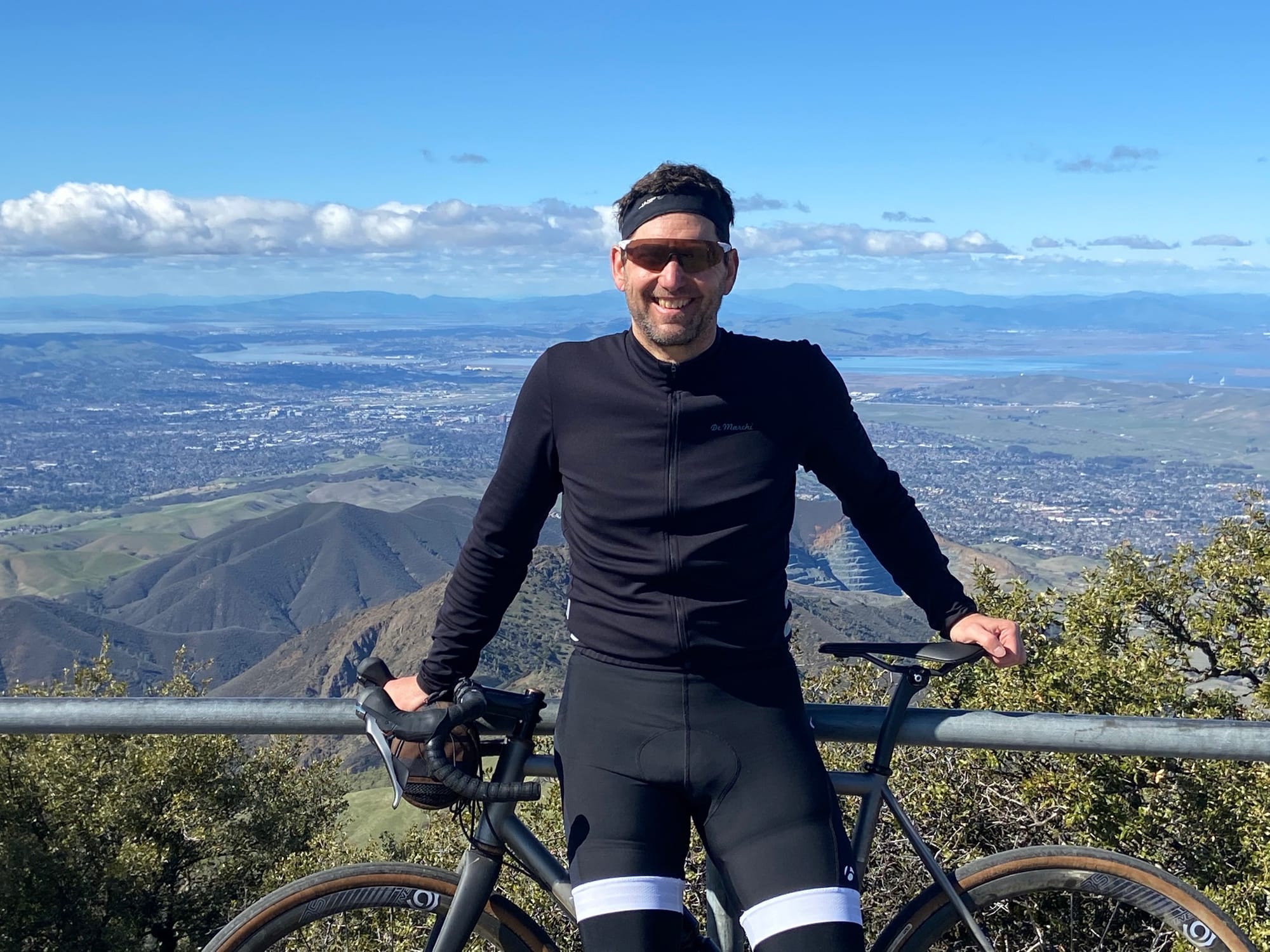Exercise and the "D" word.

Let’s imagine for a moment that you could take a magic pill that would guarantee all the aesthetic and functional benefits of exercise. You could have rock hard abs and the strength and flexibility you needed to navigate the necessities of life without injury.
There’s just one catch: you could never actually exercise again, because it would undo all the effects of the pill. Would you take it? Many people would, and I could hardly blame them. Achieving fitness in our stressed and sedentary world is hard. But, in the famous catchphrase of Lieutenant Columbo, “There’s just one more thing…”
That pill would negate one of the most important benefits (perhaps the most important benefit) of exercise: how it makes you feel.
To be perfectly clear, I'm not talking about my daily regimen of body weight squats and push-ups. I don't particularly enjoy those. But I do them because I want to mitigate the muscle and bone density loss associated with aging, and to have the functional strength to do everyday tasks with a minimal amount of effort and free of pain. They're a necessary part of life that's painful in the moment, but yield big benefits in the long-term. Kind of like saving for your retirement.
And then there's cycling. Cycling is to me what riding a tube is to surfers: it's spiritual. It's a way of seeing the world. From mountain top panoramas to slices of city life in my own backyard — I'm privy to all of them on my bike. And the best part of cycling is that all my flaws, foibles, and fears melt away when I'm cycling up a huge hill. It's just the rhythmic cadence of my breath and the small "whir" of the gears shifting. The dark clouds on the horizon recede, and the endorphins kick in.
Put very succinctly, cycling helps me manage depression.
Let's talk about the "D" word. Even in 2025, the topic is still verboten, which is odd, considering that millions of people suffer from the disease. So, to cannibalize a famous ad of yesteryear: I'm not just the writer of this blog...I'm the subject of it as well.
Just to clarify: I'm not talking about the debilitating, life-sucking, I can't get out of bed variant often called "clinical" depression. (Although, studies have shown exercise can help with that as well.) Nor am I suggesting that many people couldn't (or shouldn't) benefit from medical interventions or therapy. Those have been proven to work.
But for people like myself who experience depression as a frequent, unwelcome and mostly manageable presence, there's an antidote that's inexpensive, convenient, and widely available.
It's called exercise. And science backs me up.
Summarizing the findings of a recent study, lead author Kamela Choi PhD, an assistant professor at Harvard Medical School/Massachusetts General Hospital, wrote that on average, about 35 additional minutes of physical activity each day may help people to reduce their risk and protect against future depression episodes. (1) (2)
According to the study, both high intensity exercising (e.g. running, cycling etc.) and lower intensity movement such as yoga were linked to decreased odds of depression. The study indicated that individuals could see a 17 percent reduction in odds of a new episode of depression for each added four-hour block of activity per week. (3) (4)
Exercise helps mitigate depression in two ways: it floods your body with endorphins and facilitates the release of proteins called "neurotrophic factors."
Endorphins are the "feel-good" hormones that are released when you're having sex or skydiving. They're usually associated with intense physical activity, and are synonymous with phrases such as the "runner's high." When I'm cycling, it's the rush of endorphins that I'm chasing. When I've reached the crest of a huge hill, and the hormones have washed over me and cast their magic, the sensation is completely addictive. Whatever work I've put in, the payoff is more than worth it.

Many people, however, don't feel inclined to cycle up huge hills, or run fast (and long) enough to achieve a "high." The good news is ... they don't have to. That's where the benefits of lower-intensity exercise comes in.
In explaining the role of neurotrophic factors, Dr. Craig Miller, assistant professor of psychiatry at Harvard Medical School said that in "people who are depressed, neuroscientists have noticed that the hippocampus in the brain (the region that helps regulate mood) is smaller. Exercise supports nerve cell growth in the hippocampus, improving nerve cell connections, which helps relieve depression." (5)
The connection between neurotrophins and exercise was also underscored in another recent scientific study. In a recent PubMed article, Dr. Cristy Phillips, an Associate Professor at Arkansas State University, wrote that "evidence suggests that physical activity reduces the risk for MDD (clinical depression), mitigates symptoms, facilitates recovery, lowers the incidence of relapse, and decreases overall caregiver burden.
"Undoubtedly, many of the positive effects of physical activity on brain health and function derive from its ability to optimize central levels of brain-derived neurotrophic factor, particularly in the hippocampus." (6)
In non-scientific jargon, this means move ... and you'll feel better. Gardening, pickleball, yoga, weight training, pole-dancing, basketball, etc. It doesn't matter. Move fast. Move slowly. Or somewhere in between. Exercise is one of the best medications out there. No prescriptions required.
So, the next time you want to chase away a case of the "blues," try strapping on a pair of running shoes. Or ballet slippers.
Sources:
(1) "35 minutes a day of physical activity may protect against new episodes, even in the genetically vulnerable." (11/05/2019) Harvard Gazette
(2) Karmel W. Choi, PhD, Chia-Yen Chen, PhD, Murray B. Stein, MD, MPH; et al (01/23/2019) "Assessment of Bidirectional Relationships Between Physical Activity and Depression Among AdultsA 2-Sample Mendelian Randomization Study." JAMA Psychiatry
(3) Ibid.
(4) Ibid.
(5) "Exercise is an all-natural treatment to fight depression." (02/02/2021) Harvard Health Publishing
(6) Cristy Phillips (08/08/2017) "Brain-Derived Neurotrophic Factor, Depression, and Physical Activity: Making the Neuroplastic Connection." PubMed
Member discussion